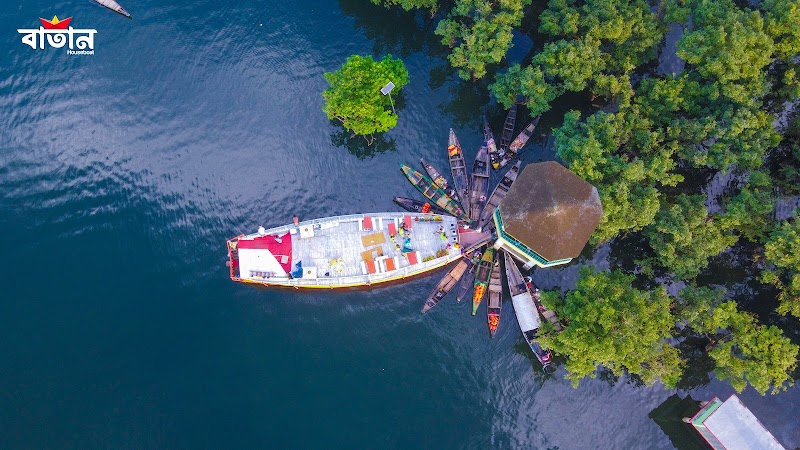
Tanguar Haor Ecologically Critical Area Adventures
Tanguar Haor is a vast wetland ecosystem in northeastern Bangladesh, renowned for its rich biodiversity and importance as a winter habitat for migratory birds, making it a prime destination for birdwatching and nature enthusiasts.
About Tanguar Haor Ecologically Critical Area

Tanguar Haor Ecologically Critical Area is one of Bangladesh's largest freshwater wetlands, covering approximately 9,727 hectares in the northeastern Sylhet Division. Geographically, it is a bowl-shaped depression or haor that floods during the monsoon and dries out in winter, creating an ideal environment for aquatic plants, fish, and a diverse assemblage of flora and fauna. The haor supports over 140 species of birds, including critically endangered species and numerous migratory birds from Siberia and China, transforming the area into a vibrant hub for birdwatching. It also sustains local communities who rely on fishing, agriculture, and crafting from wetland resources. Declared an Ecologically Critical Area by the Bangladesh government, Tanguar Haor faces pressure from overfishing, habitat degradation, and climate change effects such as altered flooding patterns. Key recreation opportunities focus on guided boat tours, birdwatching, and sustainable cultural experiences with indigenous communities. Notable landmarks include the seasonal islands formed during the dry months and traditional fishing villages that provide a glimpse into local wetland livelihoods. Visitors are drawn by the scenic water vistas, rich birdlife, and the chance to experience an authentic wetland ecosystem rare in South Asia, especially during the peak migratory season from November to February.
Highlights
Winter migratory birdwatching hotspot hosting over 140 bird species
Traditional floating fisheries and fish traps demonstrating local sustainable livelihoods
Seasonal haor islands that emerge during the dry season offering unique exploration
Boat tours through the vast waterways providing immersive wetland experiences
Notable Natural Features
Migratory Bird Habitat
Tanguar Haor provides critical wintering grounds for dozens of migratory waterfowl and shorebird species, including several vulnerable and endangered birds.
Seasonal Haor Islands
During dry months, submerged lands rise to form temporary islands used by locals for agriculture and seasonal fishing camps.
Traditional Wetland Fisheries
The area supports indigenous fishing methods such as trap nets and bamboo stakes which are practiced sustainably by local communities.
